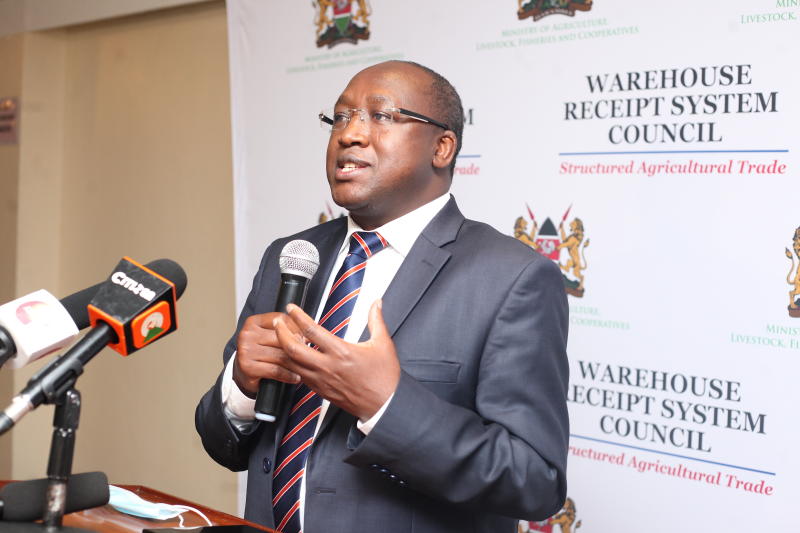Gerald Makau Masila, Executive Director at the Eastern Africa Grain Council (EAGC). [Wilberforce Okwiri, Standard]
×
The Standard e-Paper
Home To Bold Columnists

Gerald Makau Masila, Executive Director at the Eastern Africa Grain Council (EAGC). [Wilberforce Okwiri, Standard]
Two regional firms have signed an agreement that aims to improve food security by boosting efficiency in production.